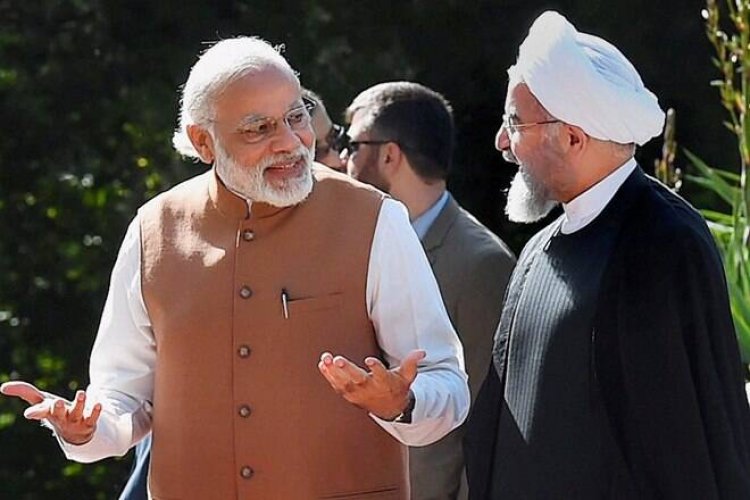India’s Strategic Interest in Central Asia

India’s decision to invite the Presidents of five Central Asian (CA) states, Kyrgyzstan, Tajikistan, Uzbekistan, Turkmenistan and Kazakhstan as chief guests at the forthcoming Republic Day celebrations, is significant. The five leaders are Emomali Rahmon of Tajikistan, Kassym-Jomart Tokayev of Kazakhstan, Sadyr Japarov of Kyrgyzstan, Gurbanguly Berdimuhamedov of Turkmenistan, and Shavkat Mirziyoyev of Uzbekistan.
Recognition of the shifting geo-political trends
The invitation, writes Yogesh Gupta (Former Ambassador) “is a recognition of the shifting geo-political trends following the US military withdrawal from Afghanistan, increasing threats to security from terror groups based there, emergence of CA countries as strategic partners and China’s creeping economic and security outreach in this region.
“Recently, there has been a sharp increase in India’s interaction with the CA states. Last month, India hosted the National Security Advisors of Russia, Iran and the CA states for a dialogue on Afghanistan. Instead of attending the OIC meeting in Islamabad on December 18-19, the foreign ministers of CA countries came to New Delhi for the 3rd India-CA dialogue with India’s External Affairs Minister (EAM). Earlier this year, EAM Jaishankar had visited Kyrgyzstan, Tajikistan, Uzbekistan and Kazakhstan and also held a meeting with his Turkmenistan counterpart.”
Russia has traditionally enjoyed considerable influence in the CA states as their economies, infrastructure and the ruling elites were closely linked to Moscow. China is also increasing it influence in CA.
In India’s interest to reduce dependence of CA on China
India too has historical, cultural and religious links with the Central Asian countries. India’s interaction with these countries has expanded after several high-level visits, including by PM Modi in July 2015, and joining of the SCO. Among the CA countries, Kazakhstan is India’s biggest trade partner. A major constraint for India, says Gupta “is lack of connectivity as the trade routes to these countries pass through Pakistan-Afghanistan, Iran and China. The Iran route was severely impacted due to the US sanctions. India and the CA countries are now trying to set up new transportation links using the Chabahar port.
India’s relations with the CA countries, writes Gupta “have acquired a strategic dimension. Kazakhstan and Uzbekistan have emerged as important suppliers of uranium to fuel India’s nuclear power plants. Tajikistan provided critical help in the evacuation of Indians from Afghanistan in August-September 2021. Considering that CA is part of India’s extended neighbourhood with its increasing political, economic and strategic significance, it will be in India’s interest to augment its linkages with these countries to reduce their dependence on China.”
Logic of India is shaking off years of Central Asia neglect
The decision to re-engage with Central Asia is a direct consequence of the concern that India may again be at risk of being out-manoeuvred in Afghanistan, because the Pakistan military establishment is once again in the ascendant in Kabul.
But the truth, writes Jyoti Malhotra (senior consulting editor at ThePrint) “is that 2021 is not 1996 and, in fact, the Taliban themselves want to engage with India today. How India, a much bigger power since 1996, chooses to engage Afghanistan is also a function of how the Taliban move towards becoming a more egalitarian nation while Delhi wonders how to remain influential in a country in which it has invested significant resources over the past 20 years.
“But there is a second, significant reason why India is choosing to engage with Central Asia today – and this is to send China the message that while Delhi has been absent here these past few decades, it is no longer willing to be taken for granted. That it is returning to a region that has for centuries been a part of India’s consciousness.
Countering China: “This is where Prime Minister Narendra Modi’s reinvigorated relationship with the Russian President comes into play. Putin knows the Chinese have been dominating this space since the Soviet Union broke up – significantly, he is not averse to engaging with a third power, like India, that seeks to claw back influence. It may be in Putin’s interest to also diminish China’s power in the region.”
So as these presidents and prime ministers take the Republic Day salute on 26 January, “each of them knows that the great old game is taking on a new form. The Chinese are hardly going to give in; Pakistan knows that it is the shortest gateway to the ocean and is seeking to increase its heft via its alliance with Beijing; while the US is circling around, waiting for the chance to return in the aftermath of its abysmal exit from Afghanistan.
"Central Asia is back on the world map. India wants to know it again. It’s a good start.”
















